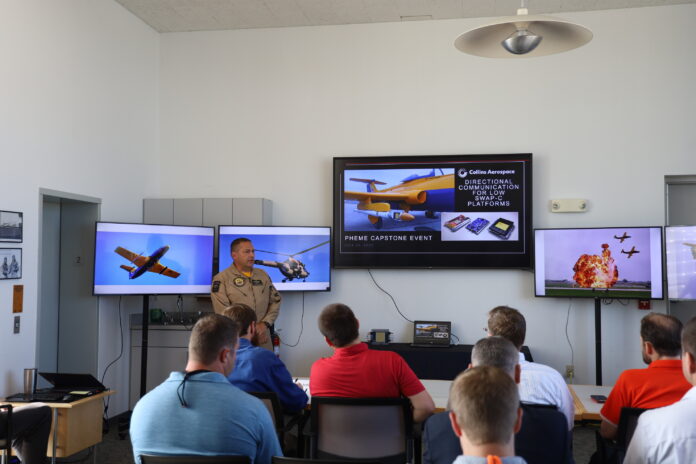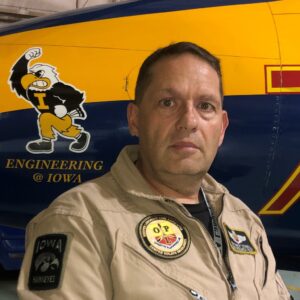
The University of Iowa Operator Performance Lab (OPL), a flight test laboratory that conducts research on human-in-the-loop and intelligent autonomous systems, aided DARPA’s Pheme project for a capstone demonstration event.
According to a press release, “Pheme is intended to create a low-cost, highly accurate…network in which a direct signal transfers data communications between military positions. The project offers important communication security benefits by establishing a reliable and direct signal that is nearly impossible for opposing forces to detect.”
DARPA stands for Defense Advanced Research Projects Agency and is a research and development agency of the United States Department of Defense.
OPL hosted officials from Collins Aerospace, the project lead; DAPRA; Raytheon Technologies; the U.S. Army Aberdeen Proving Ground; and other government and private entities at the Iowa City Municipal Airport.

“The Operator Performance Lab team is honored to be involved in so many important projects that benefit the defense of our nation,” said Tom Schnell, professor of industrial and systems engineering, OPL director, and chief test pilot, in a statement. “These significant projects also benefit OPL by attracting top level talent to our lab.”
During the event, OPL’s two AV-L-29 Delfin jets flew in a circular rotation around the airport where a mobile command station was based. Each position had directional radio overlays to relay data transfer, according to the release.
OPL also has a larger Aero L-39 Albatros jet, two MI-2 Hoplite helicopters and two piston aircraft.
The lab, based at the Iowa City Airport, has been in operation for 21 years with 2,400 hours of flight test, according to their website.




